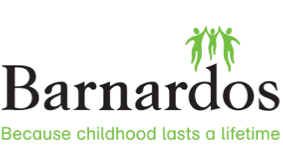Tusla, Care Orders & the Social Care System
What is a Voluntary Care Agreement?
A Voluntary Care Agreement is when a parent consents to their child being taken into care.
The parent signs a Voluntary Care Agreement which agrees to the child’s care being provided by the Child & Family Agency (Tusla).
This is different to a Care Order, as there is no legal process involved.
Parents often sign Voluntary Care Agreements when they are experiencing short-term difficulties. This can include hospital stays, attending treatment for substance misuse, domestic violence, or homelessness.
How long does a Voluntary Care Agreement last?
Voluntary care will last for as long as the parent has agreed to.
Most Voluntary Care Agreements are short-term; for example, when a parent is attending a rehabilitation facility or is in prison.
What happens when a child is placed in Voluntary Care?
When a parent agrees to their child being taken into Voluntary Care, Tusla will place the child in alternative care.
This can be foster care, relative foster care, residential care, or a special care unit.
In Voluntary Care Agreements, Tusla must consider the best interests of the child, the wishes of the child, and the wishes of the parent when making decisions about the child’s care arrangements.
Parents can suggest relatives for their child to live with, but the final decision will be made by Tusla in the best interests of the child.
How is a child’s care and wellbeing monitored in Voluntary Care?
There are many ways to monitor a child’s wellbeing and development while they are in care, such as:
- A Care Plan – this is a document that explains your child’s care arrangement. It will include information on where they will live, their education, their access to their parents and relatives, and the supports available to them. A parent can ask for a written copy of this plan.
- Child in Care Reviews – these are meetings where a parent can talk to the social worker about their child’s time in care. Parents can discuss how their child is being cared for and what their future may look like. Parents can also voice any issues they may have about their child’s care. These meetings can be requested at any time by the parent.
What happens if a parents does not want to sign a Voluntary Care Agreement?
Sometimes, a social worker will approach a parent and ask that they sign a Voluntary Care Agreement if they believe it is in the best interests of the child.
If the parent does not agree to this, the social worker can apply to the courts for a Care Order. You can find out more about Care Orders here.
Can a parent change their mind in a Voluntary Care Agreement?
A parent can change their mind in a Voluntary Care Agreement but this will need to be discussed with the social worker.
If it is in the best interests of the child to return home to their parent, Tusla will organise this. If the social worker does not believe this to be in the best interests of the child, they must provide the parent with their reasons for this decision. A parent can request to see these reasons in writing.
Are there alternatives to a Voluntary Care Agreement?
If a parent does not want to hand over care of their child to Tusla, but is unable to provide this care themselves, they can look at placing their child with a family friend or relative.
A family friend or relative can be appointed (made) a guardian or temporary guardian of the child.
Appointing a guardian is a legal process – parents can reach out to Legal Aid or a Free Legal Advice Centre (FLAC) for further information on this.
Get in touch
If you are a parent who’d like some support through childcare proceedings, freephone or email [email protected], the Parental Advocacy Service, delivered by Barnardos.
Our independent & confidential service is open to all parents of children in care.
1800 333 355.
